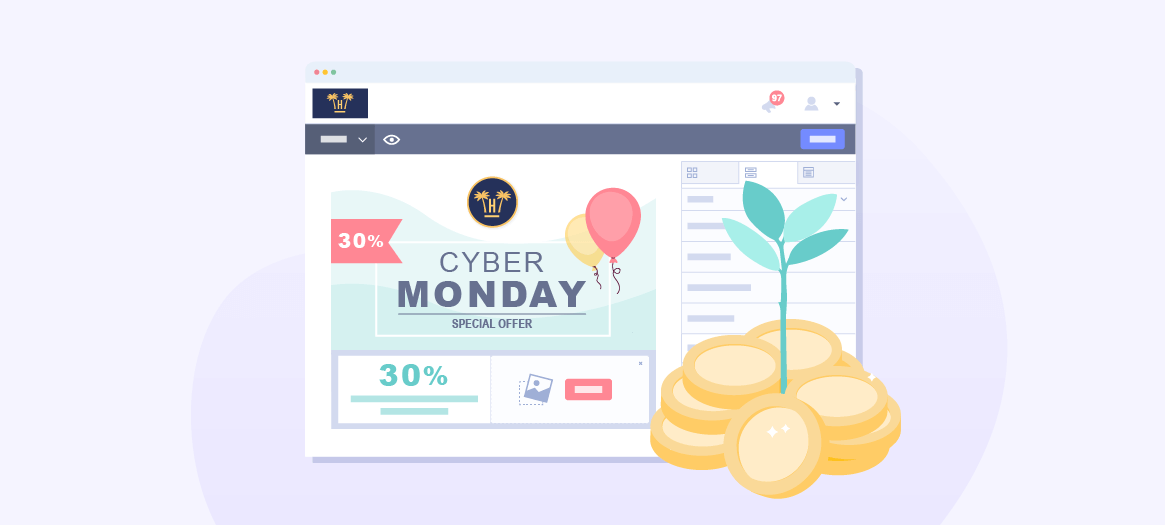
Marketing 2 Min read
5 key reasons to invest in a hotel CRM
CRM software is a crucial element that allows for effective communication and customer relationship management.
By definition, CRM software is a crucial element that allows for effective communication and customer relationship management. By being administered from a single site, it eliminates a large amount of manual tasks, minimising errors and maximising the sale capacity of a company’s sales team.
Traditionally, this customer management system has been viewed from a commercial perspective, improving the implementation of communication strategies to provide a boost to the last phases of consumer sales cycles. However, there are many benefits and reasons for which your hotel should contemplate using a CRM; especially if this is designed or conceived to manage relationships within the hotel industry.
So, what are the main reasons to invest in a hotel CRM?
1. Consolidation and centralisation of contact information.
One of the main reasons for investing in a CRM, which you will surely find appealing, is the ability to centralise your contact details. This tool allows you to consolidate all the hotel data you have about your guests. It also allows you to do so for your ‘leads’ (sales opportunities): contacts that you have acquired through your hotel’s various channels, especially via your website.
Besides the ability to store all of these contact details in a single place, the CRM also allows you to classify the information by separating basic data from qualitative data, such as your contact’s current purchase cycle stage or their interests, at any one time. This piece of information is particularly important when establishing specific communications and implementing pertinent strategies in each phase of the cycle, to be determined by the corresponding department.
2. Setting a common target for multiple teams.
Another of the main reasons for investing in a CRM is the chance to set a common target for each of the teams involved in the purchase cycle i.e. the hotel’s target. This piece of software facilitates management: not only of communication with your contacts (guests and leads), but also internal communications that optimise your strategies and improve the efficiency of your teamwork.
With this system, it is possible to align the marketing, sales and customer service department. Not only will this improve their relationship with contacts, but it will also improve their internal communication and relationships, helping the various departments to overcome the challenges posed by the guests’ purchase cycle phases.
If the teams use the CRM as a basis for mutually supporting each other, it will be easier for your hotel to meet its objectives.
This alignment and the improved internal communications will help you to compile a data base containing qualitative information that will be useful for each phase of the purchase cycle. In other words, the CRM is a complete, up-to-date, centralised and easy-to-access data base.
3. Optimised communications in all phases.
As you already know, qualitative information is vital to optimise communications in all phases of the purchase cycle. One way to optimise these interactions is through personalisation. Personalisation is increasingly important in the hotel industry. This doesn’t need to be limited to direct marketing email campaigns, although these are crucial.
Qualitative information can help teams offer a different kind of product or service. It can also help them to make great recommendations to the guests, even during their stay! In other words, these crucial pieces of information can be key in each stage of the purchase cycle, allowing you to offer the guest something that they need or want at the opportune moment. All of this is made possible by a segmentable data base that can be used to create automatic processes.
4. Improved online reputation of your properties.
Not only do these data—which can be collected via different actions and departments—allow for strategies to be optimised, but they also make it possible to improve the online reputation of your clients.
As we’ve mentioned above, personalisation is key in the current tourism market. Through personalisation, you will also manage to improve the satisfaction of your contacts and guests. Personalisation can be applied in pre and post-stay email marketing campaigns, when giving feedback on social media platforms, at reception itself or even during your guests’ holiday.
Knowing your guests well, or in other words, being able to store useful qualitative information about them in a centralised manner that can be used in key moments—particularly related to their preferences and requirements—may have a positive impact on the way in which your consumers view your brand and your various properties.
To improve your brand’s online reputation, be sure to ensure a positive client experience at all phases of the cycle.
5. Greater chance of direct bookings.
By ensuring the overall satisfaction of your guests and improving your brand’s reputation, you’ll have a better chance of securing repeat clients, or in other words, loyal clients. Regardless of your efforts to implement a client retainment programme or strategy, you will always get repeat clients. However, what would happen if you established a large-scale plan?
The CRM allows you to evaluate and maintain a record; not only of repeat clients, but also of highly satisfied clients, who perhaps made their booking via third parties. This piece of software greatly simplifies the process of segmenting and managing your communications, with a view to retaining your clients. This process could help you to increase the number of direct bookings for your hotel.
In short, not only will investing in a hotel-specific CRM help you to consolidate and optimise your sales strategy, but it will also help you secure a greater return on your investment, while also increasing the revenue of your properties.